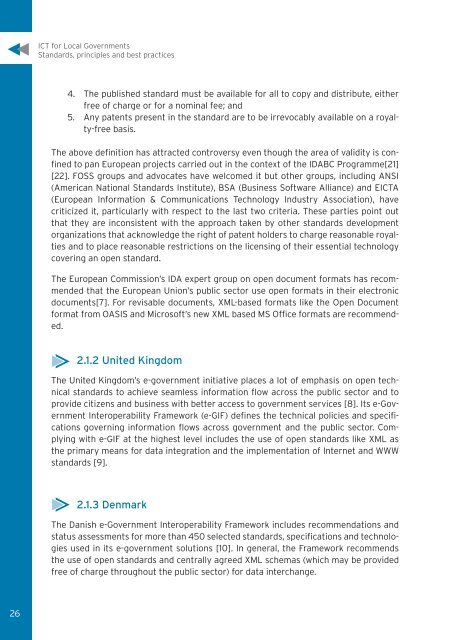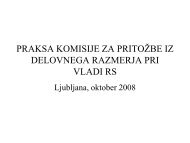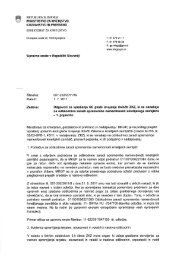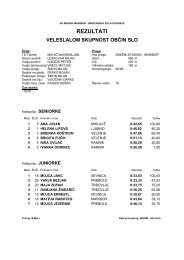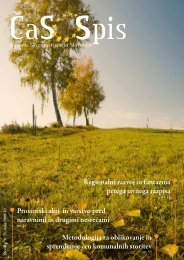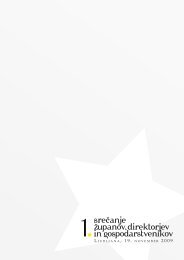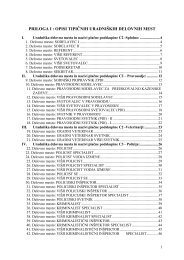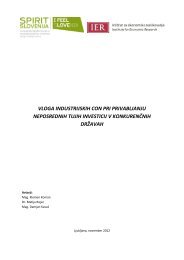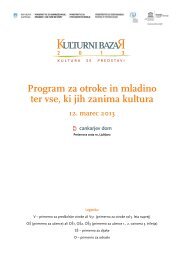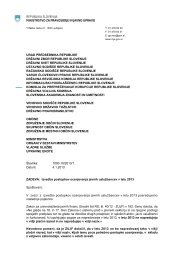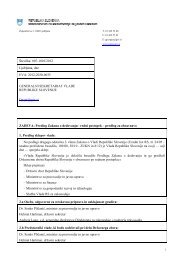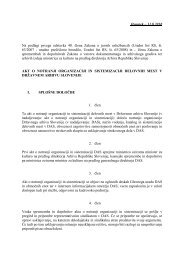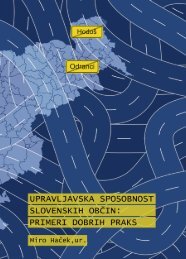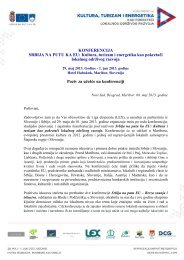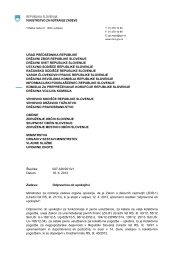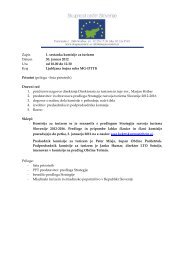for Local Governments
for Local Governments
for Local Governments
You also want an ePaper? Increase the reach of your titles
YUMPU automatically turns print PDFs into web optimized ePapers that Google loves.
26<br />
ICT <strong>for</strong> <strong>Local</strong> <strong>Governments</strong><br />
Standards, principles and best practices<br />
4. The published standard must be available <strong>for</strong> all to copy and distribute, either<br />
free of charge or <strong>for</strong> a nominal fee; and<br />
5. Any patents present in the standard are to be irrevocably available on a royalty-free<br />
basis.<br />
The above definition has attracted controversy even though the area of validity is confined<br />
to pan European projects carried out in the context of the IDABC Programme[21]<br />
[22]. FOSS groups and advocates have welcomed it but other groups, including ANSI<br />
(American National Standards Institute), BSA (Business Software Alliance) and EICTA<br />
(European In<strong>for</strong>mation & Communications Technology Industry Association), have<br />
criticized it, particularly with respect to the last two criteria. These parties point out<br />
that they are inconsistent with the approach taken by other standards development<br />
organizations that acknowledge the right of patent holders to charge reasonable royalties<br />
and to place reasonable restrictions on the licensing of their essential technology<br />
covering an open standard.<br />
The European Commission’s IDA expert group on open document <strong>for</strong>mats has recommended<br />
that the European Union’s public sector use open <strong>for</strong>mats in their electronic<br />
documents[7]. For revisable documents, XML-based <strong>for</strong>mats like the Open Document<br />
<strong>for</strong>mat from OASIS and Microsoft’s new XML based MS Office <strong>for</strong>mats are recommended.<br />
2.1.2 United Kingdom<br />
The United Kingdom’s e-government initiative places a lot of emphasis on open technical<br />
standards to achieve seamless in<strong>for</strong>mation flow across the public sector and to<br />
provide citizens and business with better access to government services [8]. Its e-Government<br />
Interoperability Framework (e-GIF) defines the technical policies and specifications<br />
governing in<strong>for</strong>mation flows across government and the public sector. Complying<br />
with e-GIF at the highest level includes the use of open standards like XML as<br />
the primary means <strong>for</strong> data integration and the implementation of Internet and WWW<br />
standards [9].<br />
2.1.3 Denmark<br />
The Danish e-Government Interoperability Framework includes recommendations and<br />
status assessments <strong>for</strong> more than 450 selected standards, specifications and technologies<br />
used in its e-government solutions [10]. In general, the Framework recommends<br />
the use of open standards and centrally agreed XML schemas (which may be provided<br />
free of charge throughout the public sector) <strong>for</strong> data interchange.


